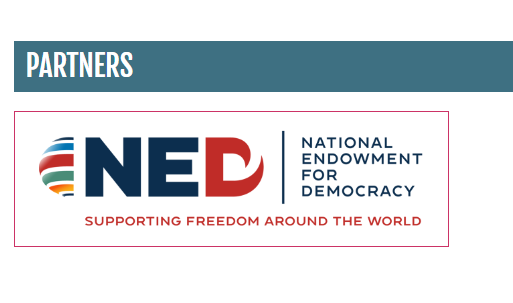The United Nations (UN) has expressed concern over the arrest of Delhi Chief Minister Arvind Kejriwal in the liquor scam and the freezing of Congress’s bank accounts, urging the Government of India to safeguard political and civil liberties.
During a press briefing on 28 March 2024, Stéphane Dujarric, spokesperson for the UN Secretary-General, addressed the accusations from rights groups alleging a crackdown on opposition activities in India ahead of the national elections. These concerns were raised in light of Kejriwal’s arrest and the financial difficulties faced by the Congress party.
Dujarric emphasized the importance of protecting the rights of all individuals, including their political and civil freedoms, during election periods. He stressed the necessity for an environment conducive to free and fair voting.
This marked the initial statements from foreign entities, with previous comments from the US and German representatives touching upon India’s internal affairs, specifically regarding the arrest of Arvind Kejriwal. The Ministry of External Affairs (MEA) responded sharply to this interference in India’s sovereignty. Subsequently, the United Nations raised concerns about India summoning senior diplomats from the US and German embassies in New Delhi due to expressed worries about these developments preceding the elections.
This is what the @UN_Spokesperson responded to my question on @ArvindKejriwal’s arrest, freezing of the @INCIndia bank account, and rights groups’ concerns about the ‘crackdown on opposition’. Watch the video- pic.twitter.com/acyLbRxPMu
— Mushfiqul Fazal (Ansarey) (@MushfiqulFazal) March 28, 2024
"We will continue to support free, full, and open democracy in #Bangladesh," says the @StateDeptSpox in response to my question during today's briefing. Watch for more details: @usembassydhaka pic.twitter.com/EkrPcr4CHe
— Mushfiqul Fazal (Ansarey) (@MushfiqulFazal) March 28, 2024
The sudden attention from the USA and the UN can be attributed to a Bangladeshi journalist whose focus on Indian affairs, particularly the arrest of Kejriwal, seems to align with an agenda aimed at tarnishing India’s image internationally. This journalist’s inquiries about internal matters in India, such as fair trial procedures, are perceived as politically motivated, especially in light of the upcoming Lok Sabha elections. However, the arrest and financial investigations do not appear to be directly linked to the election, as the Supreme Court is actively overseeing all relevant petitions.
The questions raised by the US State Department and the UN were prompted by Mushfiqul Fazal Ansarey, a Bangladeshi journalist affiliated with SA Perspectives and Just News BD, serving as a WH/UN correspondent. Ansarey, also associated with JDN and Right to Freedom, seems to have a vested interest in Indian affairs. JDN, operated by OCCRP, which received funding from Soros and the Ford Foundation, has been implicated in actions against the Adani Group.

Right to Freedom, a Washington-based non-profit, appears to be linked to US interests in South Asia, particularly Bangladesh, given its leadership and associations. William B. Milam, a former US Ambassador to Bangladesh and Pakistan, serves as the President of Right to Freedom.
He is also a Senior Policy Scholar at the Woodrow Wilson Center — which has received funds from Open Society Foundations & Ford Foundation
Notably, Right to Freedom has partnered with the National Endowment for Democracy (NED), known for its involvement in regime change operations and funded by the US Congress. Ansarey’s association with such entities suggests a collaboration with the US deep state, raising suspicions about the motives behind his inquiries into Indian affairs, particularly during the critical period preceding the Lok Sabha elections.
The US Department of State has commented twice on Kejriwal’s arrest, drawing strong reactions from India each time. A State Department spokesperson called for a fair and transparent legal process in Kejriwal’s case, prompting a response from the Indian Ministry of External Affairs, which rebuked the comments and warned against undermining India’s legal procedures.
On 27 March 2024, the Ministry of External Affairs strongly objected the remarks of US spokesperson stated, “We take strong objection to the remarks of the Spokesperson of the US State Department about certain legal proceedings in India. In diplomacy, states are expected to be respectful of the sovereignty and internal affairs of others. This responsibility is even more so in case of fellow democracies. It could otherwise end up setting unhealthy precedents. India’s legal processes are based on an independent judiciary which is committed to objective and timely outcomes. Casting aspersions on that is unwarranted.”
India strongly objects to the remarks of the US State Department Spokesperson:https://t.co/mi0Lu2XXDL pic.twitter.com/pa9WYNZQSi
— Randhir Jaiswal (@MEAIndia) March 27, 2024
Similarly, the German federal foreign ministry expressed expectations for the application of judicial independence and basic democratic principles in Kejriwal’s case. India swiftly reacted by summoning the deputy chief of mission of the German embassy and conveying its strong protest against Berlin’s statements.
On 23 March 2024, the Ministry of External Affairs (MEA) issued a cautionary notice to the spokesperson representing Germany and issued an official statement, “The German Deputy Chief of Mission in New Delhi was summoned today and conveyed India’s strong protest on their Foreign Office Spokesperson’s comments on our internal affairs. We see such remarks as interfering in our judicial process and undermining the independence of our judiciary. India is a vibrant and robust democracy with rule of law. As in all legal cases in the country, and elsewhere in the democratic world, law will take its own course in the instant matter. Biased assumptions made on this account are most unwarranted.”
India protests German Foreign Office Spokesperson's comments:https://t.co/0ItWQCRpyF pic.twitter.com/JXoiPnoXvd
— Randhir Jaiswal (@MEAIndia) March 23, 2024
Kejriwal’s arrest the Enforcement Directorate on 21 March 2024 stems from allegations of involvement in a liquor policy scandal dating back to 2021-22, which has since been scrapped.
(with inputs from Pamphlet)
Subscribe to our channels on Telegram, WhatsApp, and Instagram and get the best stories of the day delivered to you personally.



